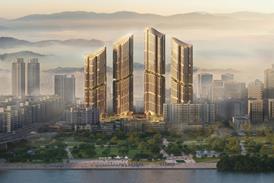- Home
 Gateway 2 cases backlog virtually cleared as government responds to damning Lords report on BSR
Gateway 2 cases backlog virtually cleared as government responds to damning Lords report on BSR Zaha Hadid Architects wins right to end licensing agreement on use of late founder’s name
Zaha Hadid Architects wins right to end licensing agreement on use of late founder’s name City approves Allies and Morrison’s £231m Barbican renewal plans
City approves Allies and Morrison’s £231m Barbican renewal plans Heatherwick unveils designs for first residential project in South Korea
Heatherwick unveils designs for first residential project in South Korea
- Intelligence for Architects
- Subscribe
- Jobs
- Events

Events calendar Explore now 
Keep up to date
Find out more
- Programmes
- CPD
- More from navigation items
Housing secretary outlines plans to reform permitted development

Jenrick reveals he is minded to use ’permission in principle’ to enforce quality
Housing secretary Robert Jenrick has given his clearest indication yet of how controversal permitted development rights will be reformed.
Speaking at an event on planning hosted by think tank Policy Exchange and Create Streets Jenrick implied that rules may be tightened up to give planning authorities much more control over the design of new buildings, via an existing process called “permission in principle”.
The expansion of permitted development under recent coalition and Conservative governments, which has allowed developers to convert business premises into homes without planning permission, has been successful in increasing housing numbers but sharply criticised for the quality of some schemes.
…
This content is available to registered users | Already registered?Login here
You are not currently logged in.
To continue reading this story, sign up for free guest access
Existing Subscriber? LOGIN
REGISTER for free access on selected stories and sign up for email alerts. You get:
- Up to the minute architecture news from around the UK
- Breaking, daily and weekly e-newsletters
Subscribe to Building Design and you will benefit from:

- Unlimited news
- Reviews of the latest buildings from all corners of the world
- Technical studies
- Full access to all our online archives
- PLUS you will receive a digital copy of WA100 worth over £45
Subscribe now for unlimited access.


